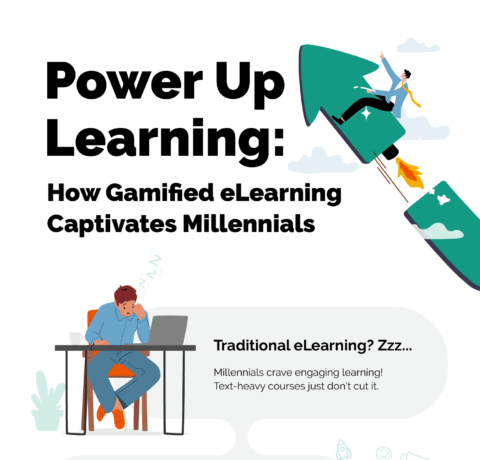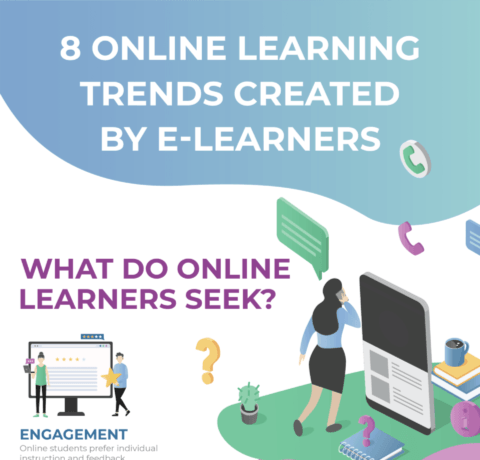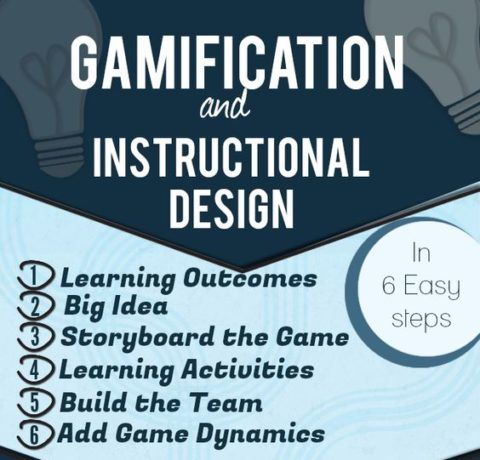Games Make Learning Fun Infographic
The concept of using games as an educational tool is currently trending in the e-learning industry, and terms such as gamification, game-based learning and serious games are everywhere. But what do they actually mean and how can we use games as part of a successful learning strategy? You’ll find all the answers in the Games Make Learning Fun Infographic.
Definitions: Navigate through the jungle of terms
- Gamification means the use of game design techniques in another (nongame) context (The reverse scenario of game-based learning).
- Edutainment = Combination of the terms „education“ and „entertainment“. All forms of educational content, which consciously rely on entertaining elements (e.g. interactive language courses).
- Game Based Learning = A learning concept in which games are used for education (e.g. parlour games for knowledge conveyance), i.e. learning is incorporated into the context of playing.
- Digital Game based learning (DGBL) = Game based learning on digital media, (e.g. computer games for problem solving).
- Serious Games = Digital games whose purpose extends beyond pure entertainment. The purpose does not have to be strictly educational (e.g. digital games used for advertising).
Formats: Digital learning games for every scenario
Adventure games (adventures)
- Storyline moves forward through problem solving. Players must use their intellect to succeed
- Encourages development of complex problem solving and other skills.
- Along the way, the player acquires information that must be incorporated into the context of the activity for the tasks to be solved.
Action games
- Reactive speed is the decisive skill.
- Peak intellectual performance is not essential.
- Promotes motor and cognitive abilities, amongst others.
- Suitable for the practice and repetition of routines, as reinforcers in the form of rewards are especially identifiable.
Simulations
- Allows players to appreciate realistic experiences.
- Assists players to gather experience within a certain area or phenomena (e.g. flight or business simulations).
Strategy games
- Clever management of resources and units leads to success.
- Promotes foresight and planning.
- Allows players to gain experience via discussion of the content and trying out different approaches.
Role-playing games
- Representation of everyday situations which allows for practise of common tasks.
- Real world experiences via interactive videos.
- Use of scenario-based conceptual approach and decision pathways.
Quiz/Puzzle Games
- Main purpose is to test knowledge/skill level.
- Especially suitable for use in multi-player scenarios, i.e. competition between colleagues
Variants: The different formats can be implemented in two ways
Mini GAMES
- Part of a classic WBT.
- Especially suitable for occasional use due to short duration.
Quiz/puzzle games and action games amongst others can be implemented well as mini games.
Complete digital learning games
- Stand-alone game modules.
- Longer playing duration.
Adventure games and role-playing games amongst others can be implemented well as complete digital learning games.
What is expected from a good game?
- Appeals to the imagination: Enables facts to be viewed from different perspectives, different roles to be taken on and identification with fictional roles or persons.
- Clear rules, goals and feedback: Clear feedback with regard to progress achieved is especially important in terms of attaining goals.
- Offers sensory stimulation: Enables or intensifies interactivity.
- Risk/challenges appropriately weighted: A balance between challenges and successes is required to keep players engrossed.
- Create curiosity: Positive results from a release of tension leads to emotional relaxation. Can express itself in the form of pride and increased self-esteem.
- Transfer control: Only through control over the game can successes be achieved and the player gather life experience.
- Balance of a pedagogic approach and game technology in terms of implementation: Game and learning areas should not be kept separate (e.g. media should only be added if relevant to the progress of the game). The game design should also be as similar to conventional games as possible – playing them should be fun!







You can adjust your cookie preferences here.